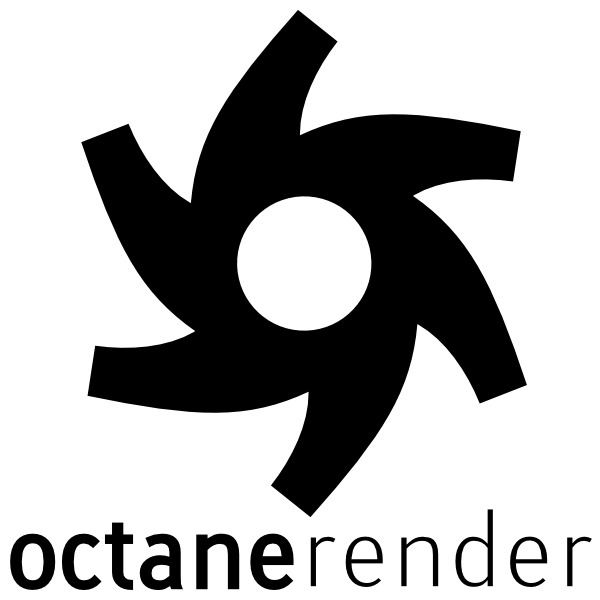Table of Contents
Introduction
OctaneRender, from OTOY, is a real-time, physically correct 3D rendering engine that uses GPUs instead of CPUs for processing. This is a relatively new approach, as traditional graphics rendering was done on CPUs instead. Graphics processors are ideal for highly parallel tasks like rendering, though, and it is easier to fit multiple video cards in a single computer than multiple CPUs.
The upcoming 2019 version of OctaneRender is adding support for the dedicated ray-tracing hardware in NVIDIA's RTX series of video cards, and a preview of the OctaneBench tool was released recently to show a sneak peek at what we can expect from this technology. We rounded up the whole GeForce RTX card line – along with the Titan RTX – to see how they compare to each other and how much of a boost RTX tech can provide. Please keep in mind that this is a preview, selected to show off RTX technology, and results may vary.
Test Methodology & Hardware
Each graphics card was run through the benchmark once, and the scores with RTX on and off were recorded. In a full performance review article I usually run applications multiple times, but OctaneBench is remarkably steady in its results from one run to the next – and since this is just a preview, I didn't want to spend a lot of extra time repeating the test for additional data points.
Since we are just looking at individual video card performance, and OctaneRender is almost entirely GPU dependant, the test platform really doesn't matter much aside from maintaining the same configuration and drivers across all of the tested cards. The open testbed I had available happened to be an X299 based system with a Core i9 9940X installed, and while that CPU is overkill for Octane (its 14 cores will be wasted on this application) is meets the basic needs of providing a full PCI-Express 3.0 x16 slot for the video card to run in.
Here are full platform details, including links to the OctaneBench 2019 Preview and the NVIDIA drivers we used, for anyone interested:
| Test Platform | |
| CPU | Intel Core i9 9940X |
| CPU Cooler | Noctua NH-U12DX i4 |
| Motherboard | Gigabyte X299 Designare EX |
| RAM | 8x DDR4-2666 16GB (128GB total) |
| Video Card | NVIDIA Titan RTX 24GB NVIDIA GeForce RTX 2080 Ti 11GB NVIDIA GeForce RTX 2080 8GB NVIDIA GeForce RTX 2070 8GB NVIDIA GeForce RTX 2060 6GB |
| Hard Drive | Samsung 960 Pro 1TB |
| Software |
Windows 10 Pro 64-bit (version 1809) |
Benchmark Results
Here are the OctaneBench 2019 Preview scores for each of the GPUs we tested, listed from fastest to slowest. Since this version of OctaneBench measures both, performance with RTX technology turned off is shown in light green and with it enabled in a darker shade:
Analysis & Conclusion
The relative performance of these cards to each other should be no surprise, so the big takeaway here is the massive improvement that RTX technology brings. On average, these cards were 185% faster with RTX enabled! To look at that another way, rendering the scene used in this benchmark with RTX on took only 35% of the time that it did with RTX turned off. That is a huge boost, only available on RTX GPUs, though it is worth noting that OTOY has said this is a best-case example of RTX's capabilities. Right now it sounds like the speed-up this tech provides depends heavily on the scene itself, with the potential for much smaller increases in other situations.
Another factor worth noting is the difference in onboard memory between these cards. In particular, the GeForce RTX 2080 Ti is only about 5% slower than the Titan RTX in OctaneRender, while costing half as much, but it also has less than half the memory of the Titan. That makes the 2080 Ti a great value for most folks, but if you need more room for your scene data then the Titan RTX with 24GB or potentially even a Quadro RTX 8000 with 48GB of VRAM is worth considering. On the other hand, for smaller projects, multiple lower-cost GeForce cards will outperform a single RTX 2080 Ti or Titan RTX if graphics memory capacity is not a big concern.
Whatever your needs and budget are, getting a RTX-series card will give a big boost over older models in OctaneRender 2019!
What Is the Best GeForce Card for OctaneRender 2019?
While the Titan RTX is currently the fastest GPU for OctaneRender 2019, its use in multi-GPU systems is limited by its cooling layout. For just one or maybe two cards, in a chassis with very good airflow, it is the top dog… but for folks wanting to build a system with three or four cards the GeForce RTX 2080 Ti with a rear-exhaust style cooler will pump out better performance thanks to the ability to stack closer together without overheating. If your scenes require more than the 2080 Ti's 11GB of VRAM, consider a Quadro RTX instead.
Looking for a
Rendering Workstation?
Puget Systems offers a range of workstations and render nodes designed specifically for rendering engines such as V-Ray, OctaneRender, and Redshift.
